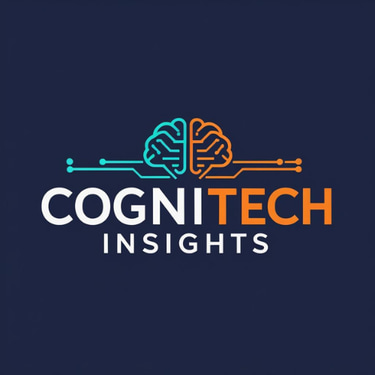How AI and Machine Learning Are Shaping the Future of Business
Explore how Artificial Intelligence and Machine Learning are redefining business strategy - from process optimization to predictive analytics and customer personalization. This post highlights real-world applications, competitive advantages, and critical considerations for adopting AI and ML in your organization.
Vladan Djurkovic
8/25/20242 min read


AI and Machine Learning: Driving the Next Wave of Business Transformation
Artificial Intelligence (AI) and Machine Learning (ML) are no longer experimental or futuristic concepts - they're central to modern enterprise strategy. From optimizing internal workflows to enabling real-time customer insights, these technologies are helping organizations become more adaptive, data-driven, and efficient.
Companies across industries are increasingly turning to AI and ML to solve complex problems, reduce operational costs, and accelerate innovation. When implemented strategically, these technologies offer not only automation, but also intelligent decision-making capabilities that improve business outcomes at scale.
Beyond Automation: Real-Time Intelligence and Predictive Power
While AI and ML are often associated with automating repetitive tasks, their real value lies in their ability to process large volumes of data and identify meaningful patterns. Machine Learning models can analyze structured and unstructured datasets to uncover trends, detect anomalies, and make predictions based on historical inputs.
This predictive capability allows businesses to move from reactive decision-making to proactive strategy. Common use cases include customer churn prediction, demand forecasting, fraud detection, and process optimization. AI systems can also continuously improve over time as they ingest new data, leading to more accurate and contextual outputs.
Enhancing Customer Experience Through Personalization
AI and ML are transforming customer interactions by enabling dynamic personalization. Natural Language Processing (NLP) powers chatbots and virtual assistants capable of handling support requests, while recommendation engines tailor content, products, or services to individual user preferences in real time.
Advanced use cases involve analyzing customer sentiment, identifying pain points in the user journey, and dynamically adjusting experiences across channels. This data-driven personalization not only improves satisfaction but also increases conversion rates and lifetime customer value.
Accelerating Innovation and Gaining Competitive Advantage
Adopting AI and ML allows organizations to iterate and innovate faster. In product development, ML models can be used to simulate performance outcomes, run design optimizations, and reduce time-to-market. In manufacturing, intelligent automation powered by computer vision and predictive maintenance systems improves production reliability and lowers operational risk.
From a strategic perspective, AI gives organizations the ability to anticipate market changes, evaluate multiple scenarios through simulation, and make better-informed decisions under uncertainty. This level of foresight is becoming a key differentiator in highly competitive environments.
Implementation Challenges and Responsible AI Practices
Despite the benefits, deploying AI and ML solutions comes with technical and organizational challenges. Data quality, governance, and model interpretability are critical to ensuring reliable outcomes. Inadequate or biased data can skew predictions and lead to poor decision-making.
There are also ethical considerations. AI systems should be transparent, fair, and aligned with organizational values. Establishing governance frameworks and aligning with responsible AI principles helps mitigate risks related to bias, privacy, and accountability.
Looking Ahead: The Evolving Role of AI and ML in Business
The role of AI and Machine Learning in enterprise strategy will continue to expand. Emerging developments such as generative AI, real-time reinforcement learning, and AI-powered decision intelligence will open new possibilities in automation, content creation, and adaptive systems.
Organizations that embrace these technologies now—while also investing in the right infrastructure, talent, and governance—will be best positioned to lead in a data-driven economy. Rather than seeing AI and ML as a one-time investment, forward-looking companies are integrating them into their long-term innovation strategy.
Conclusion
AI and Machine Learning are enabling organizations to rethink how they operate, compete, and deliver value. By moving beyond automation into advanced analytics, intelligent systems, and personalized engagement, businesses can build a more resilient, innovative, and responsive future.
The companies that succeed with AI and ML are those that treat these tools as strategic assets, not just technical enhancements. With the right approach, the future of business isn't just digital, it's intelligent.
